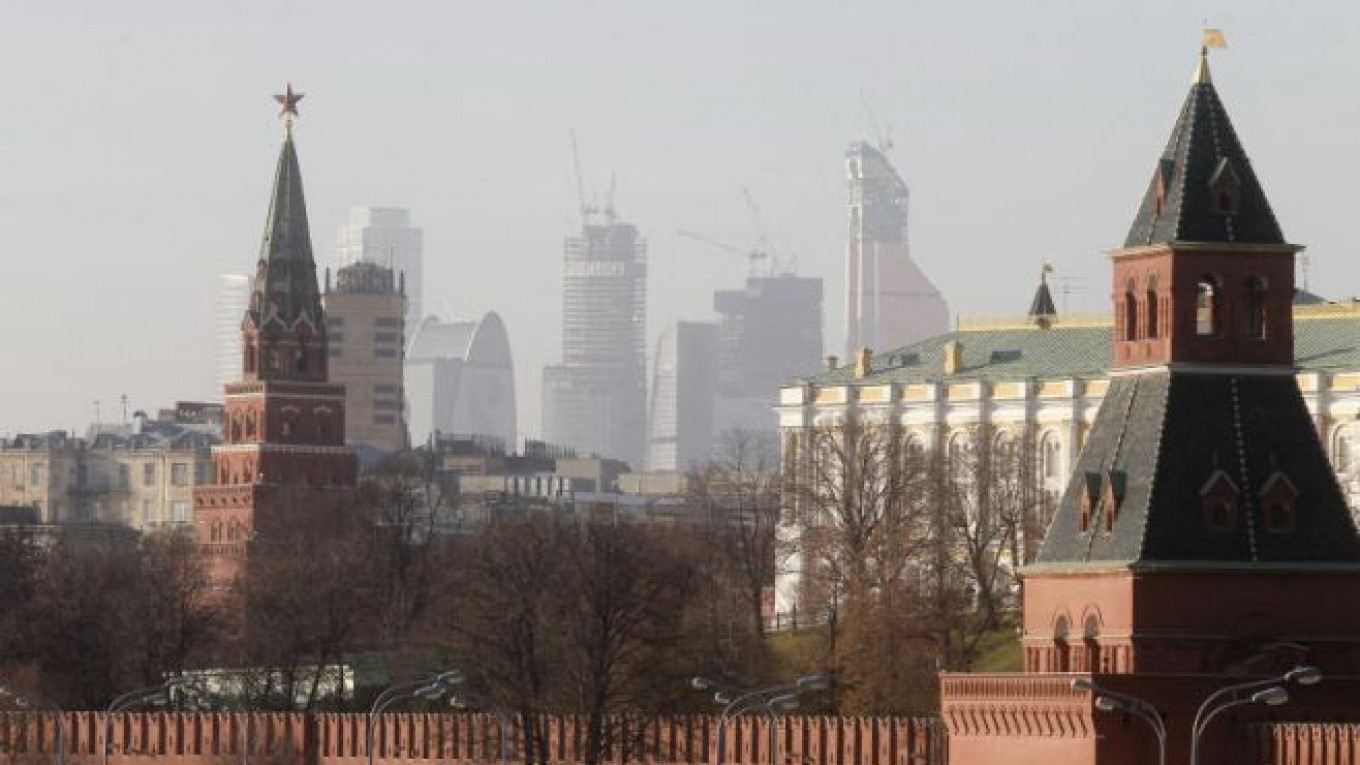European businesses in Russia are reining in investment and growth expectations as they settle in for a "new normal" of economic sanctions and a weak economy, a survey released Tuesday found.
More than a year after Moscow's annexation of Crimea from Ukraine inflamed Russia's relations with the West and resulting sanctions helped knock the country into economic crisis, optimism among European companies working in Russia is still falling, according to the survey, conducted over March and April by research firm GfK and the Association of European Businesses (AEB), a Moscow-based lobby group.
But while fewer European companies expected to see revenues rise over the next few years, the majority said they were still growing, the survey showed, and businesses are still banking on economic growth in the longer term.
Based on interviews with 108 executives at AEB member companies, conducted both face-to-face and online, the survey's index of business expectations fell to 106 out of a possible 200 points. Last year's score, which came as the first waves of Western sanctions were imposed on Russia, was 115 points.
The data shows a step fall in confidence from three years ago, when the expectations index was 159 out of 200, reflecting hopes that Russia's emerging economy of 143 million people would create a rapidly growing middle class keen to spend on consumer goods.
But while optimism is declining, "the fall has decelerated," said Alexander Demidov, managing director of GfK Rus, at a presentation of the survey on Tuesday.
"It is not as bad as we thought in December," said Stuart Lawson, executive director of the Russian arm of multinational financial services company EY, better known as Ernst & Young.
Russia appeared in December to be in the grip of a full-blown economic crisis as sanctions and falling oil prices combined to cause a headlong devaluation of the ruble and warnings of a banking crisis in 2015.
But the Russian economy shrank by a better-than-expected 2.2 percent year-on-year in the first quarter, according to federal statistics agency Rosstat, and first-quarter results among European companies beat expectations, the survey found.
Russia is no longer the fast-rising market it was in the early- to mid-2000s, when the country's economy expanded by around 7 percent per year, far outstripping European growth.
New Normal
Lawson described the current situation of sanctions and weak growth as "the new normal."
"Companies have found a way to operate in these parameters," he said.
According to the survey, 55 percent of businesses said revenues had grown over the past year, down from 69 percent in the 2013 survey and 78 percent in 2013.
Fifty-five percent of companies expected revenues to grow in the next three years, the survey found, down from 72 percent last year. Companies also said they expected investment in Russia to either stay level or fall and that the time needed to earn returns on investment would grow.
Many saw poor political relations between Russia and the West as a major weight on their business. While few companies said they had been directly affected by sanctions imposed over Russia's actions in Ukraine, 70 percent said business had been negatively affected by them, and 38 percent said business had been hit by Russia's counter-sanctions, which barred imports of certain foods from the West.
"Ukraine is the main question of the day," said GfK's Demidov.
But few expect the funk to last forever: 73 percent of respondents thought the Russian economy would grow over a six to 10 year timeframe. And though the survey's short-term expectations index was a dour 28 points out of 200, the long-term expectations index was 167 out of 200 points.
Contact the author at p.hobson@imedia.ru
A Message from The Moscow Times:
Dear readers,
We are facing unprecedented challenges. Russia's Prosecutor General's Office has designated The Moscow Times as an "undesirable" organization, criminalizing our work and putting our staff at risk of prosecution. This follows our earlier unjust labeling as a "foreign agent."
These actions are direct attempts to silence independent journalism in Russia. The authorities claim our work "discredits the decisions of the Russian leadership." We see things differently: we strive to provide accurate, unbiased reporting on Russia.
We, the journalists of The Moscow Times, refuse to be silenced. But to continue our work, we need your help.
Your support, no matter how small, makes a world of difference. If you can, please support us monthly starting from just $2. It's quick to set up, and every contribution makes a significant impact.
By supporting The Moscow Times, you're defending open, independent journalism in the face of repression. Thank you for standing with us.
Remind me later.






